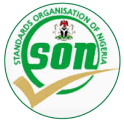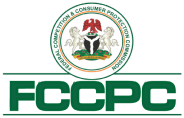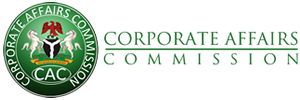PROPOSED DRAFT GUIDELINES FOR REGISTRATION OF SMALL SCALE FOOD INDUSTRIES IN NIGERIA (NAFDAC/FSAN/SS002/17)
- General
- Personnel
- Building/Facilities
- Equipment
- Raw/Packaging Materials & Scope
- Quality Assurance/Quality Control
- Environmental Sanitation & Personal Hygiene
- Documentation
- Consumer Complaint & Recall
- Distribution System
- Transportation & Handling
- Label
- Product Registration
- Tariff
- GENERAL top
Small Scale food industries are businesses that are limited in the amount of activity, little in size when compared with what is typical or average. Staff strength is less than ten, but not more than fifteen and has a share capital business of about five to ten million
- These guidelines are for the general public and in particular individual that wants to engage in manufacturing of Small scale food
- Special NAFDAC numbers will be granted to companies in this
- These guidelines prescribe the minimum Good Hygiene Practice (GHP) requirements for the facilities, controls to be used in the manufacture, processing and packaging of Small food products to ensure that they meet food safety
- A Small Scale food operation still has to comply with the labelling, adulteration and other provisions found in the Agency regulations, as well as other applicable State or Federal
- No food product should be manufactured, imported, exported, advertised, sold or distributed in Nigeria unless it has been registered in accordance with the provisions of Act Cap F33 LFN 2004. Consequently, a food product shall not be manufactured in Nigeria unless the factory is inspected and certificate of recognition is issued by
NOTE: The following products listed below Potentially Hazardous Foods/Temperature Controlled for Safety Foods (PHF/TCS) are exempted from registration under Micro scale Industry. Except if otherwise, if the intending applicant(s) has the adequate equipment, facilities and personnel with adequate education/training, experience in the manufacturing, processing and packaging of the product(s):
- Meat and meat products
- Poultry (Chicken, Eggs, Turkey, Duck)
- Fish and Fish products
- Milk and dairy products
- Cooked rice, bean or vegetable
- Baked potatoes
- Beverages
- Water
2. PERSONNEL top
There should be at least 2 or 3 qualified production personnel to perform assigned duties. Each personnel engaged in Small Scale Food manufacturing should have:
- Basic education /Adequate Training
- Experience
Personnel should wear protective apparel/gears, such as head, face, hand, and arm coverings to protect products from Personnel should practice good sanitation and hygienic
BUILDING
Building can either be purpose built or part of an existing residential building. The rooms must be demarcated from existing residential accommodation. A separate entrance and exit rooms are provided. None of the rooms must open directly into any source (toilet, bathroom, personal kitchen, etc).
3.2 PRODUCTION AREA.
- The apartment provided for production can either be a purpose – built structure or an existing standard room, with a detached entrance and
- Must be adequate for the orderly placement of equipment and materials to prevent mix-ups between different materials.
- Windows and entrance doors should be screened with insect-proof netting and the doors should be self-closing to prevent Adequate ventilation, cooling, lighting should be provided in all areas to facilitate easy identification of materials, cleaning, maintenance and proper operations.
3.3 FINISHED PRODUCT STORE top
All finished products must be stored in a palletized cool dry place following safe, good handling guidelines to prevent contamination and adulteration caused by insect, household chemicals, water damage and insanitary condition.
4. EQUIPMENT
- The design of equipment should be such as to make it adequate and suitable for its Intended
- Its layout and design must aim to minimize the risk of mix-ups and permit effective cleaning and maintenance in order to avoid cross contamination, build- up of dust, dirt, food particle or any other contaminant that can affect the quality of the
- The parts of the equipment that makes contact with products should be made of non-Toxic/non-reactive materials such as food grade stainless steel
5. RAW/PACKAGING MATERIALS AND SOURCE top
- Raw and packaging materials should be purchased from traceable
- They should be of good quality and
- All incoming materials should be stored under appropriate storage
6. QUALITY ASSUARANCE/QUALITY CONTROL
Small Scale Food Producing industry are required to send a batch sample of their finished products to a public analyst for comprehensive analysis and document same in a file while rectifying any anomaly in the parameter reading by carrying out the needed process change(s) for the overall product quality conformity.
7. ENVIRONMENTAL SANITATION AND PERSONNEL HYGIENE
Appropriate sanitation measures should be taken to avoid contamination risks of all kinds.
- The entire production area(s) should be cleaned frequently and thoroughly in accordance with the standard operating procedure (SOP) for
- Equipment should be thoroughly cleaned in strict compliance to the
- Water system toilets and washing facilities should be appropriately located, designed, equipped and the sanitation shall be maintained satisfactorily in strict compliance to the SOP”s.
- Eating, Drinking and Smoking should not be permitted when production is ongoing in the production
- All operators should wear appropriate protective garments/gowning.
- Production staff should undergo food handler’s test/medical examination at least once a year.
- Persons known to be suffering from communicable diseases or with wounds should be excluded from duty until they are certified medically
- Wastes should be adequately disposed of in strict compliance to the
8. DOCUMENTATION top
The aim of documentation is to define the specification for all materials and methods of manufacture and control, to ensure that all personnel concerned with manufacturing process know what to do and when to do it. The required documentation includes the following:
- Standard Operating Procedure (SOP’s) for Production.(To be filled out)
- Standard Operating Procedure for cleaning of equipment and production area(s). (To be filled out)
- Standard Operating Procedures for Waste Disposal. (To be filled out)
- Food handler’s test certificates
- Fumigation
- Documentation according to (2) of this
9. CONSUMER COMPLAINT AND RECALL
All consumer complaints must be thoroughly investigated and documented. Step must be taken to prevent future occurrence. If a recall is decided upon, it should be done quickly using the production batch history through the product distribution records. All records of recalled products must be kept. In event of recall, NAFDAC must be fully notified of all actions at receipt of consumer complaint, during investigation and actual recall activity.
10. DISTRIBUTION SYSTEM top
Record of product distribution network must be properly kept for easy recall of defective products. Distributors’ names, addresses, fax, phone, email etc. should be obtained.
11. TRANSPORTATION AND HANDLING:
Products should be handled and transported under conditions which prevent deterioration, contamination, spoilage and breakage to ensure that the product quality is maintained up to the time of delivery to the consumer.
12. LABEL
Product should be labeled adequately in English language. The label should also contain composition/ingredient(s) list, and within the label should be stated the net weight/volume of content, address, lot/batch number, production date, expiry date, direction for use and NAFDAC registration number.
Note: Nutritional claim(s) are not allowed on the label.
13. PRODUCT REGISTRATION
The food product should be registered with NAFDAC upon industry registration and the following documents will be submitted for the processing of the product.
- A letter requesting for production inspection addressed to the Acting Director General, NAFDAC and a copy to the Director, Food Safety and Applied Nutrition Directorate (FSAN).
- The letter will be accompanied with the following:
- Standard Operating Procedures (SOP) for Cleaning equipment,
- SOP for Sanitation of environment,
- SOP for Hygiene of
- Certificate of Food Handlers test for production staff,
- List of equipment,
- Certificate of fumigation,
- Certified copy of Company registration,
- Certificate or Business name,
- Evidence of Trade mark registration,
- Vetted label/primary packaging material and
- Payment receipt of product registration
- Filled Product Registration form must be accompanied with all the above listed documents and be submitted to Registration and Regulatory Affairs directorate.
14. TARIFF top
| S/N | PRODUCTION/ RENEWAL INSPECTION | LICENCE | GMP RE- ASSESSMENT | FOLLOW UP INSPECTION | LABORATORY ANALYSIS |
| 1. | 5,000.00 | 5,000.00 | 5,000.00 | 5,000.00 | 10,000.00 |
5% VAT is charged on all statutory fees. AND THE FEE IS JUST FOR ONE YEAR
All correspondences and application should be addressed to:
The Director General
NAFDAC.
And a copy to be sent to:
The Director (FSAN)
Food Safety and Applied Nutrition Directorate NAFDAC
Lagos.
NAFDAC website: www.nafdac.gov.ng.
E-mail address: foodsafety.nutrition@nafdac.gov.ng.






